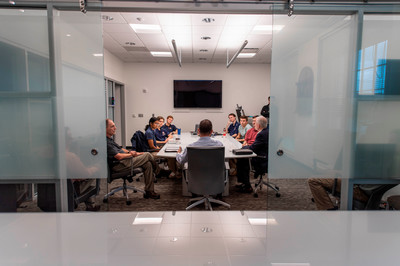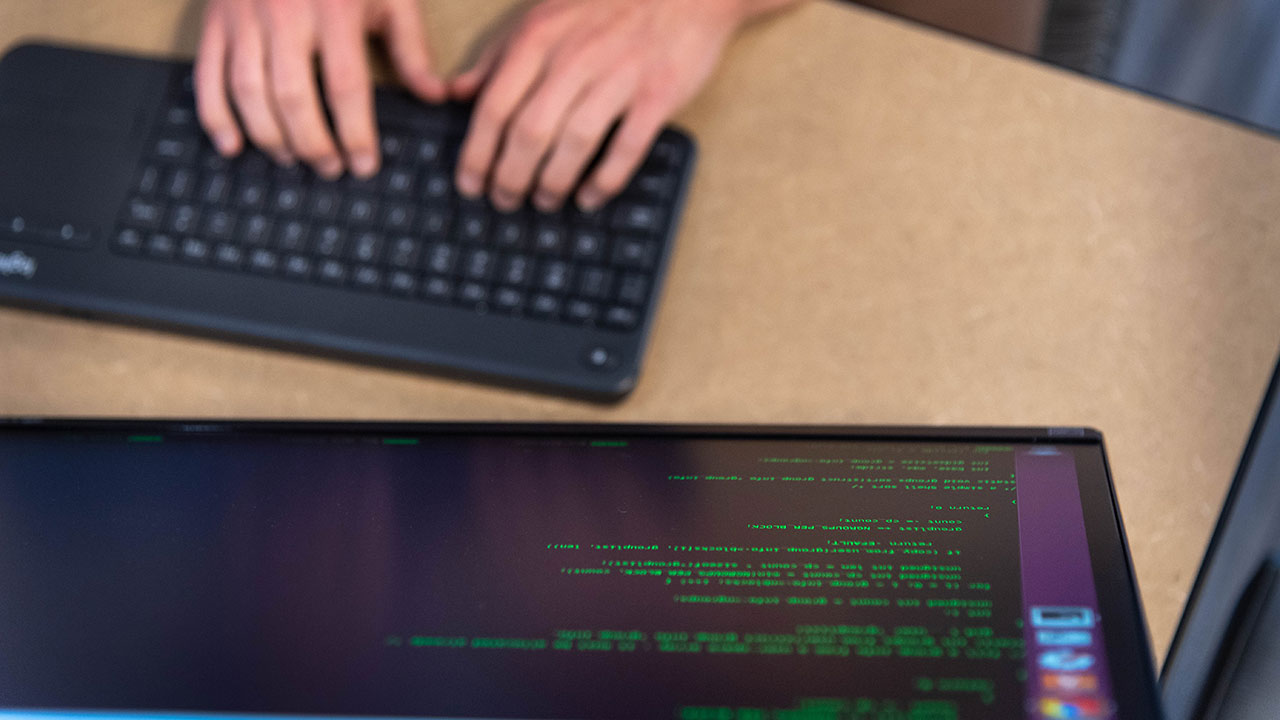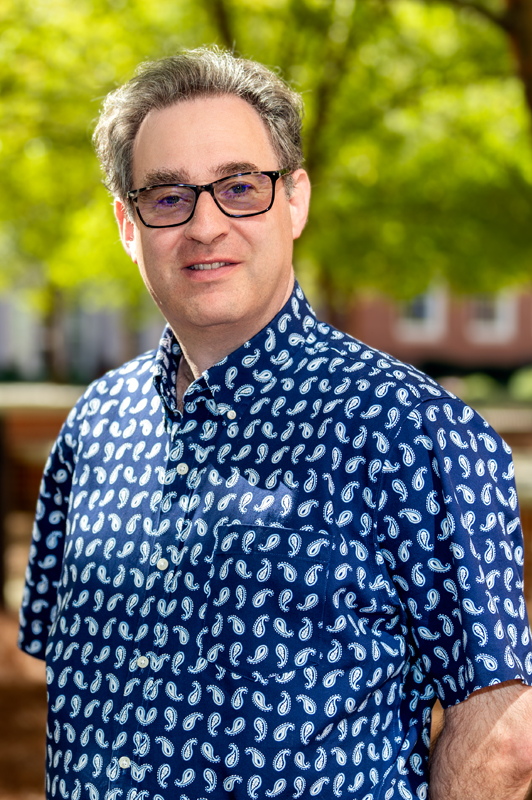Auburn Cyber Research Center the focal point for academic security research at Auburn University
Published: Dec 6, 2023 10:00 AM
By Joe McAdory
The Auburn Cyber Research Center (ACRC) isn’t just a team of computer scientists exploring new means to protect the cybersphere from malicious hackers or designing the latest, greatest systems that are nearly impervious from outside intrusion.
It’s where researchers in additive manufacturing collaborate with cybersecurity experts on securing additive manufacturing, for instance to ward off sabotage attacks. It’s where civil engineers learn about the adversarial mindset, to help them contemplate how malicious actors may attempt to attack bridges, roads, and buildings in order to design security within from the start. It’s where aerospace engineers collaborate on investigating – then pontificate – ideas to bolster the security of orbiting satellite mega-constellation. It’s where computer engineers work on hardware and supply chain security, such as the detection of counterfeit integrated circuits.

“The Auburn Cyber Research Center is the focal point for academic security research at Auburn University,” said Daniel Tauritz, associate professor of computer science and software engineering (CSSE), director of National Laboratory Relationships, and the ACRC’s interim director and chief cyber artificial intelligence strategist. “It’s where we bring together interdisciplinary groups of faculty and students interested in cybersecurity, cyber physical security – and all forms of security, basically — to work together on important, cross-disciplinary projects with a blend of applied and foundational research to solve security problems. We also collaborate with the McCrary Institute for Cyber and Critical Infrastructure Security, a pro-active thinktank of decorated security experts who address the looming security issues of the future.”
A team of ACRC faculty members stewards CSSE’s master of science in cybersecurity engineering, graduate certificate in cybersecurity engineering and undergraduate certificate in cyber defense. Under that stewardship, Auburn University was recently re-designated by the National Security Agency as a Center of Academic Excellence in Cyber Defense (CAE-CD) and a Center of Academic Excellence in Cyber Operations (CAE-CO), which together with AU’s designation as a Center of Academic Excellence in Cyber Research (CAE-R), makes AU one of only ten institutions to hold all three coveted designations.
“The battle to protect critical infrastructure, from computer networks to advanced manufacturing and beyond, has significantly increased in complexity due to the rise of artificial intelligence (AI). This is due to three related phenomena, namely 1) adversaries employing offensive AI to automate and speed up attacks far beyond what human security professionals can handle manually, 2) defenders employing defensive AI to allow human security professionals to focus on high-level decision making, and 3) adversarial AI where attackers target AI including defensive AI, and defenders employ AI to counter the attackers’ AI. That’s already changed the game and will quickly grow in importance,” Tauritz said.
“My background is artificial intelligence,” said Tauritz, who assumed the role of ACRC interim director in 2020. “One of the things I've added to ACRC’s original focus areas is the intersection with AI. My own research focuses on AI for security, while other ACRC faculty focus on the security of AI. These days, AI is pervasive. Everywhere you go, you will see people using AI and organizations relying on AI. But AI is vulnerable, too. How are we going to secure AI? At the same time, AI is useful in solving hard security problems. We've broadened the original mission of ACRC to think maybe more broadly about what security means.”
ACRC is also home to the student organization Auburn University Ethical Hacking Club (AUEHC), where undergraduate and graduate students from multiple disciplines not only develop cybersecurity skills but learn adversarial roles in cyber defense and digital forensics. In 2023 alone, AUEHC participated in three U.S. Department of Energy cyber competitions, namely CyberForce, Cyber Fire Puzzles, and Tracer FIRE.
“You have to think like the adversary,” Tauritz said. “If they're trying to mess with your system, have you built that system to hold off an attack? Even in computer science, when we build software, traditionally, we’ve not built it assuming a bad actor is going to hack into it. Think of the internet and how it got started. There were few security measures built in because back then it was a small set of universities and government organizations who trusted each other. Now the whole world is running on it, and guess what? Bad people are messing with it. ACRC is a convener for subject matter experts to address such threats.”
ACRC’s physical space — the Gen. Ron Burgess Cyber Laboratory — doesn’t consist of test tubes, beakers, flasks, or microscopes. Instead, researchers and students are provided with a state-of-the-art 378 square-foot conference room and innovative 927 square-foot collaboration space. Located on the second floor of the Shelby Center, this space is outfitted with a variety of equipment and tools to support hands-on cyber- and cyber-physical security experimentation, including:
- Stratasys 3D printer with multiple extruders and the ability to print chemical bath dissolvable support material
- Siemens industrial PLC trainer
- Allen Bradley pick-and-place PLC trainer
- Professional-grade digital forensics equipment
- Enterprise networking equipment
ACRC is also home to the center’s Virtual Network Lab, a GNS3 based local cloud supporting running virtual machines for cyber security research and education. The center houses a powerful OpenStack Cluster server — computing infrastructure for researchers with more than 100 terabytes of usable storage.
“Our collaboration space is where faculty and students work on projects, brainstorm, have competitions, develop great ideas, and build them,” Tauritz said. “We are hosting a senior design class from aerospace engineering this semester. We’re a bit different from other centers. We’re much more a ‘bring people together’ center than, ‘hey, we've got this tool that nobody else has.’”
Media Contact: , jem0040@auburn.edu, 334.844.3447
The Auburn Cyber Research Center is housed within the Department of Computer Science and Software Engineering in the Shelby Center for Technology.


